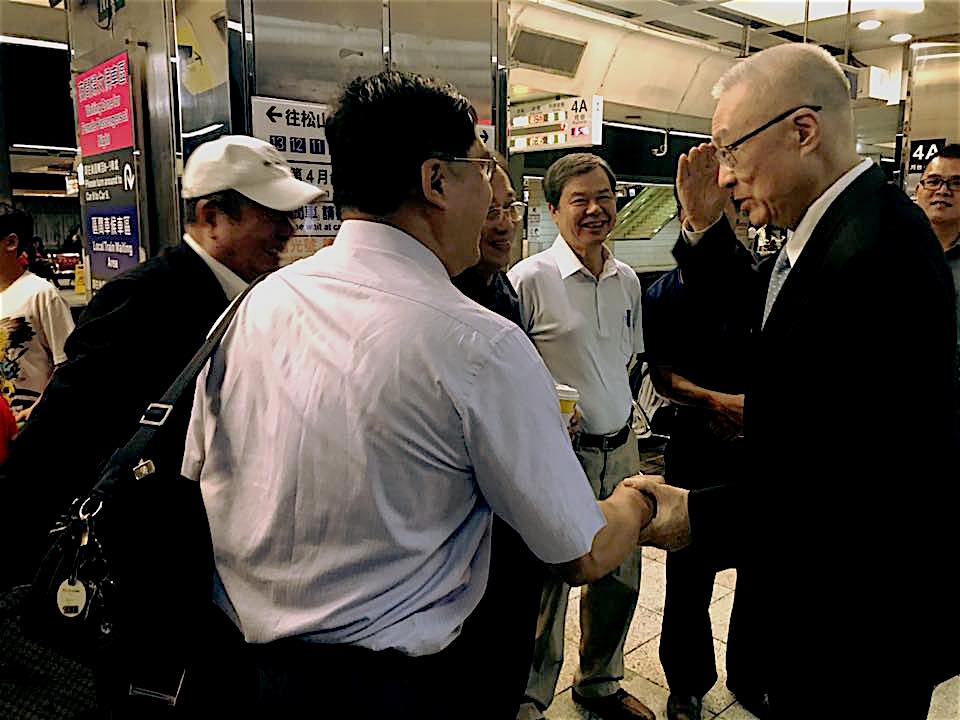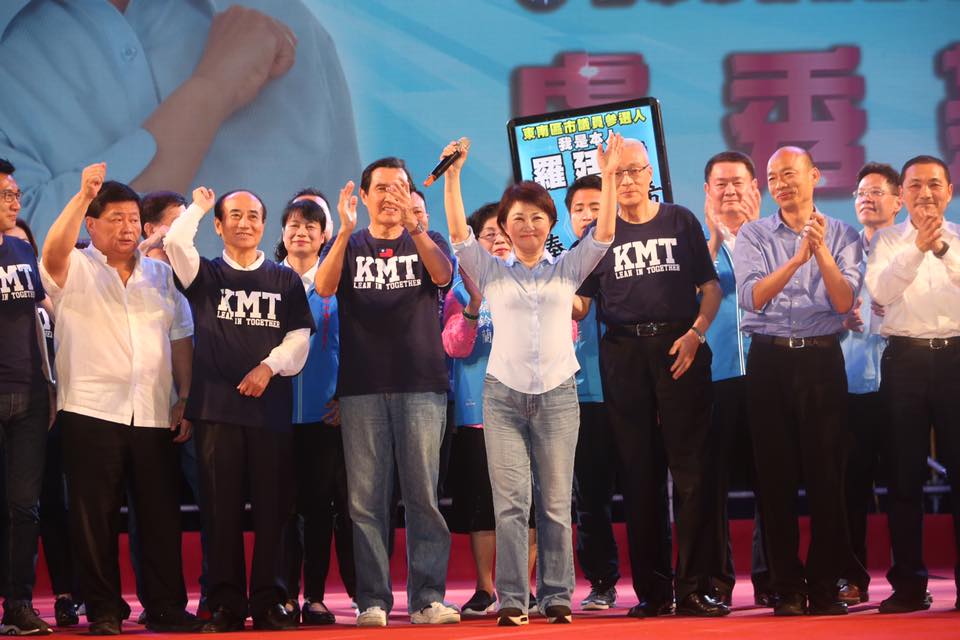by Brian Hioe
語言:
English
Photo Credit: 台灣的義氣-吳敦義粉絲團/Facebook
COMMENTS BY KMT chair Wu Den-yih last week involved Wu making dubious claims about the past record of the Tsai administration in order to suggest that the Taiwanese electorate should turn over political power back to the KMT. Still, the memory of the Taiwanese electorate can be short, and one suspects that Wu’s comments will have some traction among the general public.
The most dubious of Wu’s comments would be the claim that while the KMT was in power, murder incidents such as those involving a spate of dismemberments in past months did not take place. However, Wu also pointed to the slow economy under the Tsai administration and the loss of diplomatic allies since the Tsai administration took office as other signs of the incompetence of the Tsai administration.
 Wu Den-yih (right), meeting with supporters. Photo credit: 台灣的義氣-吳敦義粉絲團/Facebook
Wu Den-yih (right), meeting with supporters. Photo credit: 台灣的義氣-吳敦義粉絲團/Facebook
In connecting a sluggish economy, the loss of diplomatic allies, and murder incidents as signs of the Tsai administration’s poor performance, one generally suspects that Wu seems to suggest something like that the Tsai administration has lost the “mandate of heaven” and so faces a number of disasters on all fronts.
Wu’s comments are patently false. For one, murder incidents highly shocking of Taiwanese society also took place when the KMT was in power, such as the Cheng Chieh subway stabbing incident. It also seems a stretch to connect random murder incidents to any policy of the Tsai administration, as though Tsai could have prevented these murders from having taken place through some form of policy. Nevertheless, this sometimes is precisely the accusation against the Tsai administration, as in criticisms that the Tsai administration’s failure to adequately use the death penalty is what causes murder incidents to happen—criticisms that eventually led the Tsai administration to conduct its first execution last month. As some pointed out on the Internet as Wu’s specific phrasing was that “large murder incidents” did not take place under the KMT, the KMT itself can also be seen as Taiwan’s largest perpetrator of murders, given the mass killings which took place during the authoritarian period.
With his comments about the economy, Wu hopes to engender a sense of nostalgia for past KMT administrations, whether under the Ma administration or during past periods of one-party KMT rule when the Taiwanese economy was stronger, as well as to suggest that building stronger economic ties with China under the leadership of the KMT will be Taiwan’s economic salvation. But Taiwan has faced a slow economy for years, including under the previous Ma administration, and so the difficulties faced by the Taiwanese economy cannot be solely attributed to Tsai.
And it proves ironic that Wu would claim that Taiwan’s loss of diplomatic allies is a fault of the Tsai administration. This would be a product of Chinese attempts to pressure the Tsai administration given the Tsai administration’s refusal to acknowledge the 1992 Consensus. China may also hope to pressure the Taiwanese electorate into voting the KMT by poaching Taiwan’s diplomatic allies—during the KMT Ma administration, China refrained from poaching diplomatic allies of the ROC.
 Wu at a KMT election rally event, along with former president Ma Ying-Jeou and others. Photo credit: 台灣的義氣-吳敦義粉絲團/Facebook
Wu at a KMT election rally event, along with former president Ma Ying-Jeou and others. Photo credit: 台灣的義氣-吳敦義粉絲團/Facebook
But the KMT is complicit with the loss of diplomatic allies, given the KMT’s alliance with China, and its attempts to facilitate the political unification of Taiwan and China. The KMT has no compunction with Taiwan losing diplomatic allies in and of itself—so long as this occurs under a DPP administration and in such a manner as to politically benefit the KMT.
All this would be nothing new for the KMT. Nonetheless, the memory of the Taiwanese electorate can be short, and it is probable that some will be taken in by these claims. Whether with Taiwan or any other country, sometimes simply remembering several years ago, under a previous president, can seem like trying to recall another lifetime.
One observes that the KMT, a party decidedly out of touch with the present and one which is unable to articulate any positive vision for the future to win over voters, must now rely on nostalgia and “negative” messaging about the current Tsai administration. On the other hand, it is also to be questioned whether the Tsai administration, which has itself drifted away from the positive vision for the future that it articulated in 2016, is able to summon up the historical memory of the past crimes of the KMT in order to prevent uncritical nostalgia from allowing for a resurgence by the KMT.

